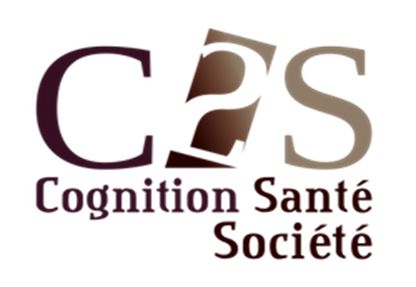Elimari, N., & Lafargue, G. (2024). Two social minds in one brain? error-related negativity provides evidence for parallel processing pathways during social evaluation. Cognition and Emotion, 38(1), 90-102.
Luyat, M., Dumez, K., Noël, M., Altintas, E., Campion, C., Lafargue, G., & Guerraz, M. (2023). The tool effect is lower in older adults with or without cognitive impairments than in young adults. Psychological Research, 1-8.
Elimari, N., & Lafargue, G. (2023). Neural correlates of performance monitoring vary as a function of competition between automatic and controlled processes: An ERP study. Consciousness and Cognition, 110, 103505.
Elimari, N., & Lafargue, G. (2023) Qu'est-ce que la psychologie évolutive ? Cognition et comportements à la lumière de l'évolution. L'Année Psychologique, 123, 173-214. https://doi.org/10.3917/anpsy1.231.0173
Elimari, N., Lafargue, G (2022). Influence du système immunitaire comportemental sur la xénophobie et l'altruisme en temps de pandémie. Le cas de la crise COVID-19, in BOST, F., Delettre, P., Odou, P., Ranvier, A.,Thuriot, F (dir.), Les épidémies au prisme des SHS. De quelles crises les épidémies sont-elles porteuses ?., Editions des archives contemporaines, France, ISBN : 9782813004659, pp. 75-82, doi : https://doi.org/10.17184/eac.5992
Lemaitre, AL., Lafargue, G., Herbet, G. (2021). Raising the Question of Personality Changes in Glioma Surgery. In Intraoperative Mapping of Cognitive Networks (pp. 355-366). Springer, Cham.
Lemaitre, AL., Herbet, G., Duffau H, Lafargue, G. (2021). Personality and behavioral changes after brain tumor resection: a lesion mapping study. Acta Neurochirurgica, 163(5), 1257-1267.
Elimari, N., & Lafargue, G. (2020). Network Neuroscience and the Adapted Mind: Rethinking the Role of Network Theories in Evolutionary Psychology. Frontiers in Psychology, 11(2546).
Lemaitre AL, Lafargue, G., Duffau H, Herbet G. (2018). Damage to the left uncinate fasciculus is associated with heightened schizotypal traits: A multimodal lesion-mapping study. Schizophrenia Research, 197: 240-248.
Lemaitre, AL., Herbet, G., Duffau, H., Lafargue, G. (2018). Preserved metacognitive ability despite unilateral or even bilateral anterior prefrontal resection. Brain and Cognition, 120:48-57.
Herbet, G, Lafargue, G., Duffau H. (2017). An atlas of neuroplastic potential in brain-damaged patients. Med. Sci. (33)1:84-86.
Lemaitre, A., Luyat, M., Lafargue, G. (2016). Individuals with pronounced schizotypal traits are particularly successful in tickling themselves. Consciousness and Cognition, 41:64-71.
Herbet, G, Maheu M., Costi E, Lafargue G., Duffau H. (2016). Mapping neuroplastic potential in brain-damaged patients. Brain, 139:829-44.
Herbet,G, Lafargue, G., Duffau H. (2016). The dorsal cingulate cortex as a critical gateway in the network supporting conscious awareness. Brain, 139: e23.
Herbet, G., Lafargue, G., Moritz-Gasser, S., de Champfleur, NM., Costi, E., Bonnetblanc, F., Duffau, H. (2015). A disconnection account of subjective empathy impairments in diffuse low-grade glioma patients. Neuropsychologia, 70: 165-176.
Herbet, G., Lafargue, G., Duffau, H. (2015). Rethinking voxel-wise lesion-deficit analysis: A new challenge for computational neuropsychology. Cortex, 64: 413-416.
Herbet, G., Lafargue, G., Almairac, F., Moritz-Gasser, S., Bonnetblanc, F., Duffau, H. (2015). Disrupting the right pars opercularis with electrical stimulation frees the song. Journal of Neurosurgery, 123:1401-4.
Herbet, G., Lafargue, G., Moritz-Gasser, S., Bonnetblanc, F., Duffau, H. (2015). Interfering with the neural activity of mirror-related frontal areas impairs mentalistic inferences. Brain Structure and Function, 220(4):2159-69.
Metral M, Guardia D, Bauwens I, Guerraz M, Lafargue, G, Cottencin O, Luyat M. (2014). Painfully thin but locked inside a fatter body: abnormalities in both anticipation and execution of action in anorexia nervosa. BMC Research Notes, 7:707, 1-11.
Herbet, G., Lafargue, G., Menjot de Champfleur, N., Moritz-Gasser, S., Le Bars, E., Bonnetblanc F., Duffau, H. (2014). Disrupting posterior cingulate connectivity disconnects consciousness from the external environment. Neuropsychologia, 56:239-44.
Lafargue, G., Luyat M., Keeping the body in mind (2014). Journal of Novel Physiotherapy, 4:197-200.
Herbet, G., Lafargue, G., Bonnetblanc, F., Moritz-Gasser, S., Manjot de Champfleur, N., Duffau, H. (2014). Inferring a dual-stream model of mentalizing from the disconnection of associative white matter fibres. Brain, 137:944-59.
Herbet, G., Lafargue, G., Bonnetblanc, F., Moritz-Gasser, S., Duffau, H. (2013). Is the right frontal cortex really crucial in the mentalizing network? A longitudinal study in patients with a slow growing lésion. Cortex, 49(10):2711-27.
Lafargue, G., Noël, M., Luyat, M. (2013). In the elderly, failure to update internal models leads to over-optimistic predictions about upcoming actions. PlosOne, 8(1):e51218.

